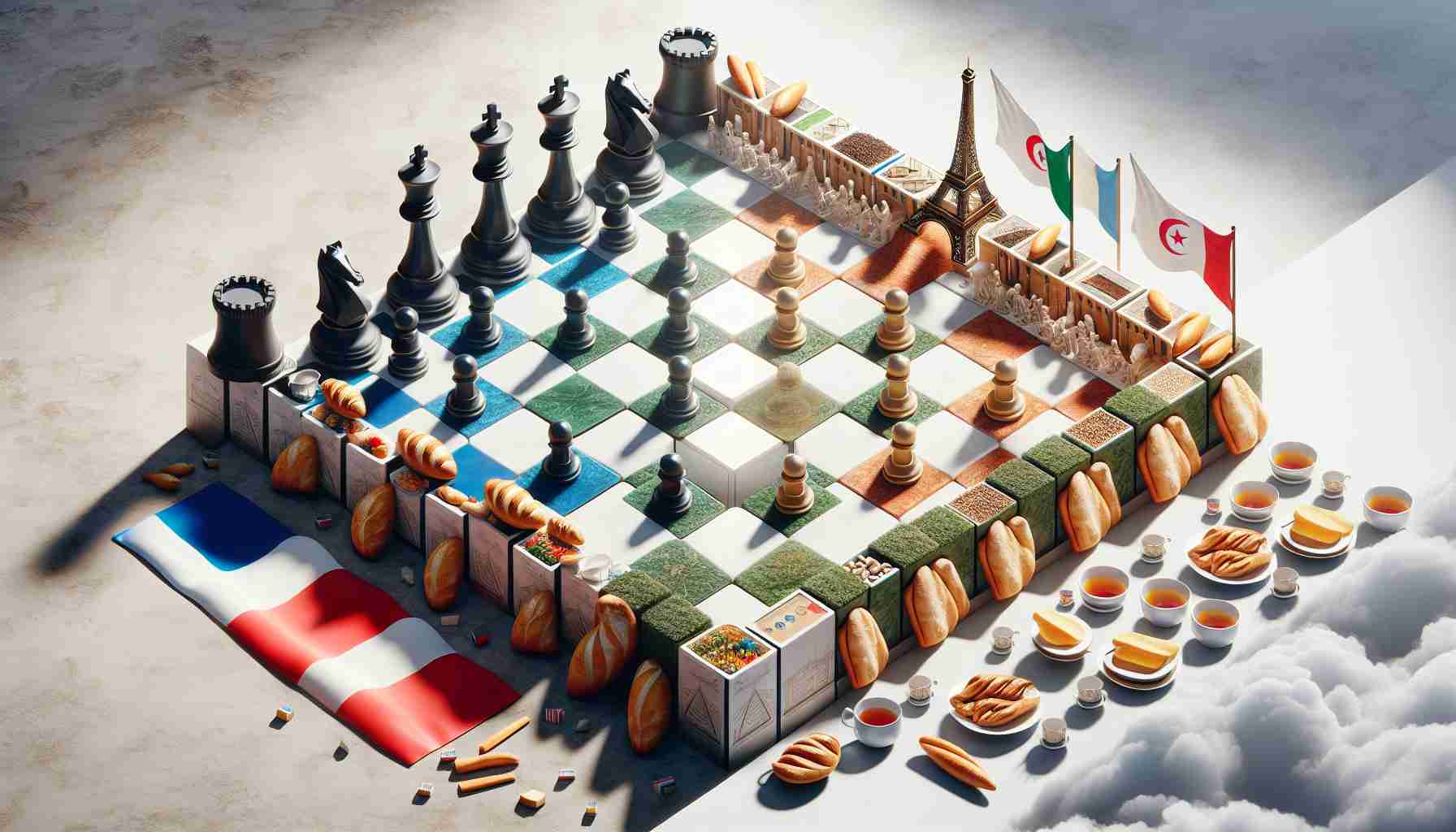The Growing Rift
The strained relationship between France and Algeria has once again entered a turbulent phase. Recently, a number of Algerian influencers residing in France were detained on charges related to hate speech, drawing international attention. This incident is compounded by the diplomatic fallout over the arrest of Boualem Sansal, an Algerian-French writer, in Algeria, triggering a war of words between the two nations.
Adding fuel to the fire, French Foreign Minister Jean-Noël Verfaillie expressed that France would have no choice but to respond if Algeria continued its hostile actions. This statement underscores the escalating tension that has plagued bilateral relations, particularly amid recurring crises.
Political analyst Bilal Lamraoui pointed out that Algeria has a history of utilizing threatening diplomacy and aggressive rhetoric against dissenters of its military government. He noted that recent French statements indicate a clear intention to counteract this approach. The tensions have intensified following France’s acknowledgment of Morocco’s sovereignty over Western Sahara and the subsequent detention of Sansal, who is known for his critical stance towards the Algerian regime.
French President Emmanuel Macron commented on Sansal’s arrest, stating it tarnishes Algeria’s international standing. Observers warn that if this animosity persists, it could lead to a deeper rift between both nations, opening the door to various potential outcomes in the near future.
Franco-Algerian Relations: Navigating a Complex Landscape
An Overview of Franco-Algerian Tensions
The relationship between France and Algeria is once again under strain, with recent incidents highlighting the complexities and sensitivities within these bilateral ties. These tensions are not only defined by diplomatic spats but also by a rich historical context that continues to shape interactions today.
Key Events Driving Current Tensions
1. Detention of Influencers: The detainment of Algerian social media influencers in France on hate speech charges has brought the spotlight onto the broader issues surrounding freedom of expression and the role of expatriate voices in the political landscape.
2. Arrest of Boualem Sansal: The arrest of famed Algerian-French author Boualem Sansal during a visit to Algeria has sparked outrage among French officials and cultural communities. His critical views on the Algerian government and calls for reform have positioned him as a contentious figure in this diplomatic tug-of-war.
3. Political Statements: French Foreign Minister Jean-Noël Verfaillie’s remarks asserting that France will respond to Algeria’s “hostile actions” highlight the need for France to assert its stance amidst provocations. This rhetoric showcases a departure from previous diplomatic norms and signals rising tensions.
The Impact of Historical Context
The histories of both nations are deeply intertwined, leading to complicated sentiments on both sides. The legacy of colonization, the struggle for independence, and subsequent socio-political developments continue to influence public opinion and diplomatic relations. Some experts suggest that both countries need to acknowledge this shared history to move towards a more constructive dialogue.
Pros and Cons of the Current Diplomatic Climate
Pros:
– Increased Awareness: The recent tensions have drawn international attention to the issues of free speech and government accountability in Algeria, potentially encouraging reforms.
– Focus on Human Rights: The focus on human rights abuses can lead to increased pressure on the Algerian government to improve its standing in the international community.
Cons:
– Escalating Conflict: Continuous diplomatic spats may undermine cooperative opportunities in areas such as trade, security, and cultural exchange.
– Polarization of Communities: The rising tensions risk further polarizing Algerian communities in France, complicating societal integration and fostering division.
Potential Outcomes
If the current trend of hostility continues, experts predict several possible scenarios:
– Deterioration of Relations: Continuous escalations could result in significant diplomatic fallout, reducing diplomatic engagement and increasing isolation.
– Increased Advocacy for Reform: Alternatively, growing international scrutiny may compel Algeria to take steps toward reform, especially in relation to civil liberties.
– Cultural Exchanges Disrupted: Tensions can also impact cultural exchanges and cooperation, which are vital components of the Franco-Algerian relationship.
Conclusion: A Critical Junction
The current situation between France and Algeria illustrates a fragile equilibrium, marked by historical grievances and contemporary political discord. Both nations stand at a crossroads, where their decisions will not only impact their bilateral relations but also resonate throughout the wider geopolitical landscape.
For further insights into Franco-Algerian relations and how they evolve, visit France 24.
